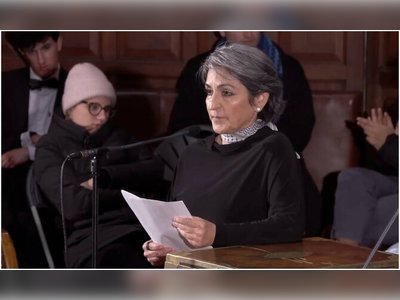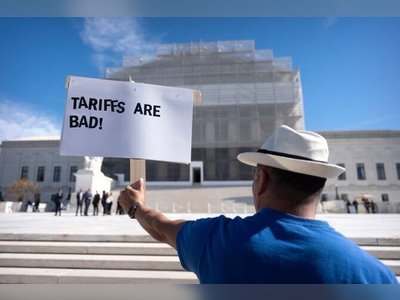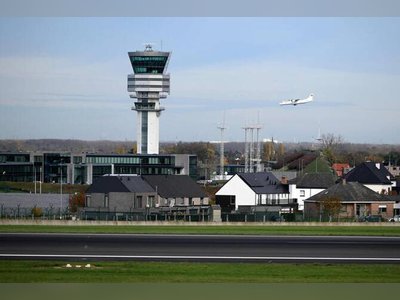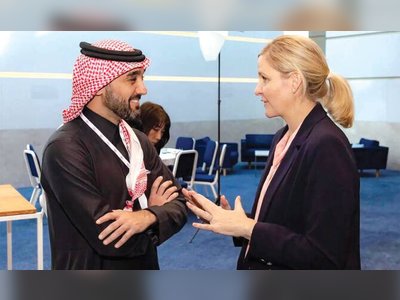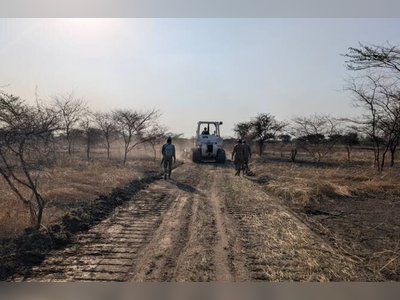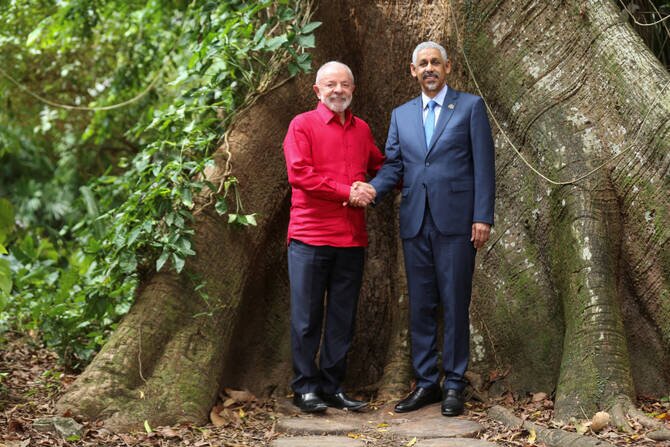
World Leaders Gather in Belem for Climate Summit Amid Global Challenges
Heads of state and government meet ahead of COP26 to push climate action despite political hurdles and U.S. absence.
In the Brazilian Amazon city of Belem, world leaders are set to convene this week for a pivotal summit focused on combating climate change.
Despite the absence of the United States, which has opted out under President Donald Trump's skepticism toward climate science, around 50 heads of state and government from across the globe will gather on Thursday and Friday in an effort to underscore the enduring global commitment to addressing climate issues before the UN Conference of Parties (COP) climate negotiations commence next week.The summit, taking place against a backdrop of geopolitical tensions, economic challenges, and varying national commitments to environmental policies, has drawn significant attention.
Key figures expected include UK Prime Minister Keir Starmer and French President Emmanuel Macron, while major economies such as China and India will be represented by deputies or climate ministers.
The decision to hold the summit in Belem, a city grappling with infrastructure limitations and steep hotel fees, underscores the logistical challenges faced by smaller delegations and NGOs planning to participate.Brazil, under the leadership of President Luiz Inacio Lula da Silva, aims to use this event not for securing new commitments but to emphasize the necessity of implementing previously agreed-upon climate actions.
Brazil is advocating for a global fund that would financially reward tropical nations for preserving their rainforests and placing significant emphasis on adaptation measures to combat the effects of rising seas and climate-related disasters.
This initiative reflects an acknowledgment by many developing countries of the urgent need for enhanced climate financing, with calls to increase support to approximately $1.3 trillion annually by 2035.The summit's agenda is further complicated by Brazil's recent approval of oil drilling near the Amazon River, a move that stands in stark contrast to the environmental goals being pursued at COP30.
Additionally, the unresolved call for new, ambitious climate pledges and the acknowledgment from UN Secretary-General Antonio Guterres that limiting global warming to 1.5 degrees Celsius will not be met add layers of complexity to the discussions.Participants are under pressure to deliver concrete mandates and tangible progress on addressing climate change, particularly in light of recent setbacks such as the failure to reach an agreement on reducing pollution from international shipping due to intense opposition from the U.S. The need for ambitious action is emphasized by nations that face existential threats from rising sea levels and catastrophic climate events.
These countries stress the imperative of moving beyond dialogue and into substantive implementation of climate solutions.The summit in Belem is poised to highlight both the global consensus on the urgency of addressing climate change and the significant political, economic, and logistical challenges that lie ahead in achieving this goal.
Despite the absence of the United States, which has opted out under President Donald Trump's skepticism toward climate science, around 50 heads of state and government from across the globe will gather on Thursday and Friday in an effort to underscore the enduring global commitment to addressing climate issues before the UN Conference of Parties (COP) climate negotiations commence next week.The summit, taking place against a backdrop of geopolitical tensions, economic challenges, and varying national commitments to environmental policies, has drawn significant attention.
Key figures expected include UK Prime Minister Keir Starmer and French President Emmanuel Macron, while major economies such as China and India will be represented by deputies or climate ministers.
The decision to hold the summit in Belem, a city grappling with infrastructure limitations and steep hotel fees, underscores the logistical challenges faced by smaller delegations and NGOs planning to participate.Brazil, under the leadership of President Luiz Inacio Lula da Silva, aims to use this event not for securing new commitments but to emphasize the necessity of implementing previously agreed-upon climate actions.
Brazil is advocating for a global fund that would financially reward tropical nations for preserving their rainforests and placing significant emphasis on adaptation measures to combat the effects of rising seas and climate-related disasters.
This initiative reflects an acknowledgment by many developing countries of the urgent need for enhanced climate financing, with calls to increase support to approximately $1.3 trillion annually by 2035.The summit's agenda is further complicated by Brazil's recent approval of oil drilling near the Amazon River, a move that stands in stark contrast to the environmental goals being pursued at COP30.
Additionally, the unresolved call for new, ambitious climate pledges and the acknowledgment from UN Secretary-General Antonio Guterres that limiting global warming to 1.5 degrees Celsius will not be met add layers of complexity to the discussions.Participants are under pressure to deliver concrete mandates and tangible progress on addressing climate change, particularly in light of recent setbacks such as the failure to reach an agreement on reducing pollution from international shipping due to intense opposition from the U.S. The need for ambitious action is emphasized by nations that face existential threats from rising sea levels and catastrophic climate events.
These countries stress the imperative of moving beyond dialogue and into substantive implementation of climate solutions.The summit in Belem is poised to highlight both the global consensus on the urgency of addressing climate change and the significant political, economic, and logistical challenges that lie ahead in achieving this goal.





